Home Appliance wholesale
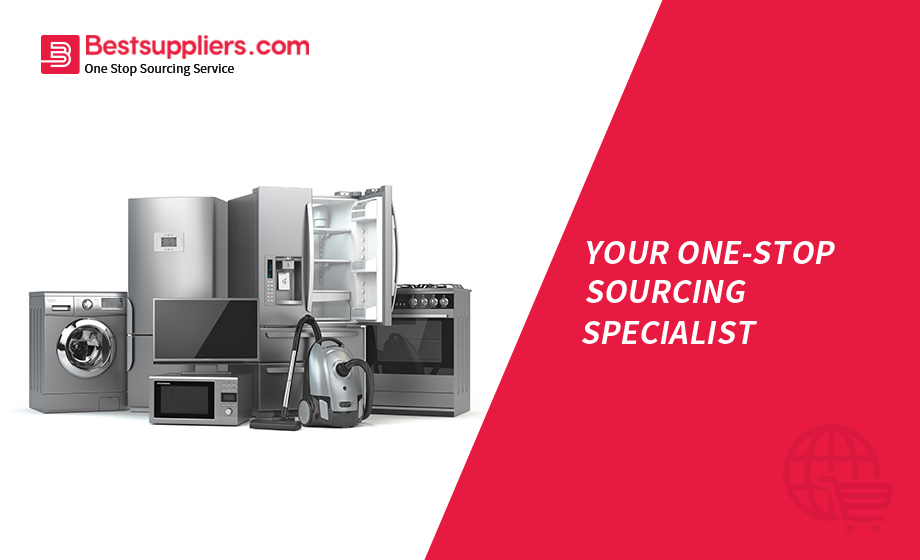
Introduction
The global demand for home appliances has surged in recent years, driven by evolving consumer lifestyles and the desire for convenience. As a result, businesses and entrepreneurs seeking to capitalize on this growing market are constantly searching for cost-effective and high-quality sources of home appliances. One country that stands out in this regard is China, which has become a dominant player in the global home appliance market. In this article, we will explore why wholesale home appliances from China have gained such prominence, and how to find reliable suppliers in this bustling marketplace.
Setting the Stage: The Growing Demand for Home Appliances
The contemporary lifestyle is marked by a fast-paced environment where time is of the essence. Consequently, the demand for home appliances has never been higher. These devices, ranging from refrigerators and washing machines to smart kitchen gadgets, play a pivotal role in simplifying daily chores and enhancing comfort.
China, as the world's most populous country, is a significant contributor to this rising demand. With an increasing middle-class population and urbanization, more Chinese households are looking to invest in modern home appliances. Additionally, the global trend toward urban living and automation has led to a surge in the export of Chinese home appliances.
The Role of China in the Global Home Appliance Market
China's dominance in the global home appliance market is undeniable. The country boasts a vast manufacturing infrastructure, a skilled labor force, and the ability to produce appliances at scale. Chinese home appliance manufacturers are renowned for their ability to cater to both budget-conscious consumers and those seeking premium, cutting-edge products.
But why should businesses and entrepreneurs consider wholesale home appliances from China as their source? Let's delve into the key reasons.
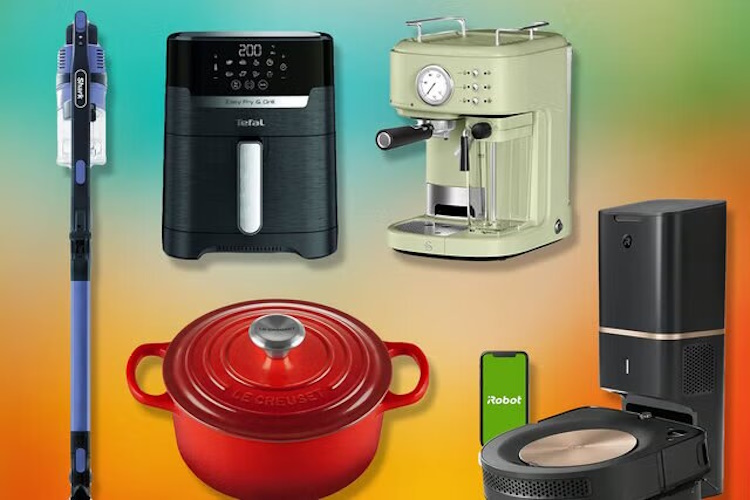
Why Wholesale Home Appliances from China?
1. Competitive Pricing: The Cost Advantage
One of the primary factors driving businesses to source home appliances from China is competitive pricing. The economies of scale achieved by Chinese manufacturers enable them to offer products at lower prices than many competitors. This cost advantage allows businesses to maintain healthy profit margins and provide affordable options to consumers.
2. Quality Assurance: The Importance of Supplier Selection
Quality is paramount when dealing with home appliances. To ensure that you receive high-quality products, it's crucial to carefully select your Chinese suppliers. Reputable manufacturers often adhere to stringent quality control measures, guaranteeing that the appliances meet international standards. This ensures that your customers receive reliable and durable products, enhancing your brand's reputation.
3. Variety and Customization: Meeting Diverse Market Needs
China's home appliance market is incredibly diverse, offering a wide range of products to cater to various consumer preferences. Whether you're looking for traditional appliances or cutting-edge smart devices, Chinese suppliers can provide a vast array of options. Moreover, many suppliers offer customization services, allowing you to tailor products to meet the specific demands of your target market.
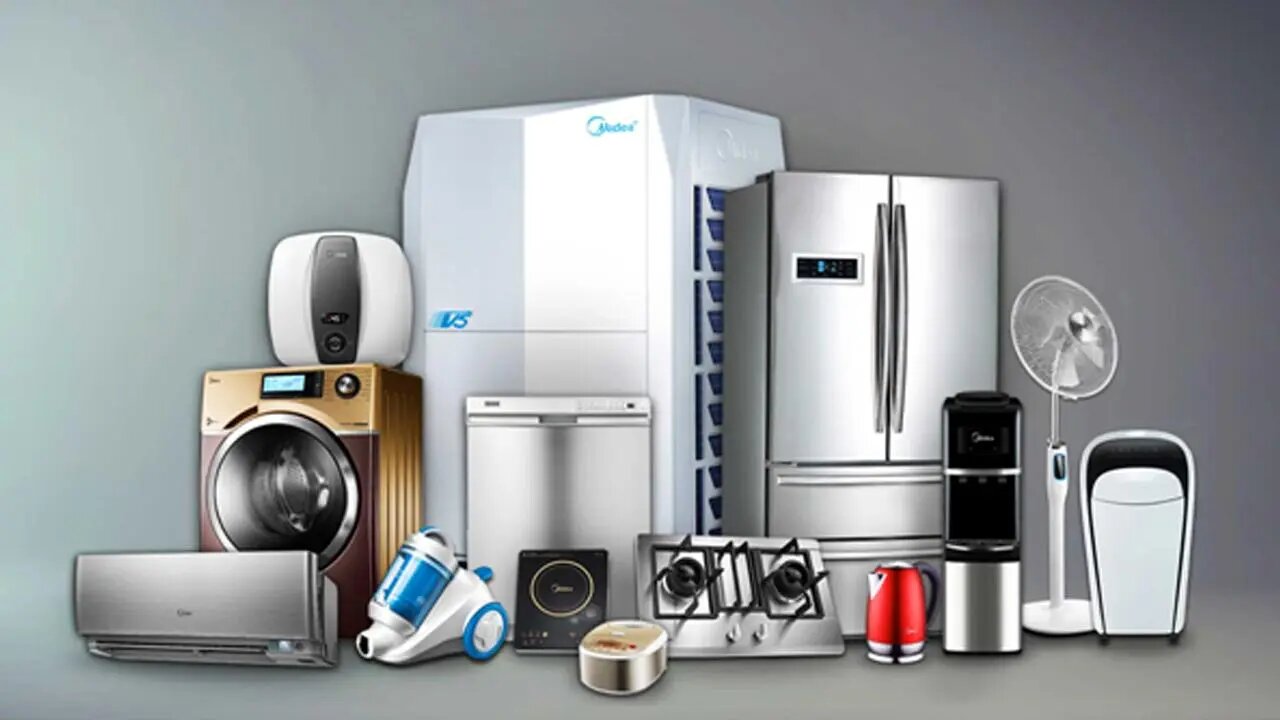
Finding Reliable Suppliers
When it comes to sourcing home appliances from China, finding reliable suppliers is the cornerstone of a successful business venture. Let's explore the essential steps in this process.
1. Researching Potential Suppliers
- Online Marketplaces: Online platforms such as Alibaba, Made-in-China, and Global Sources have become go-to destinations for finding Chinese home appliance suppliers. These platforms provide a convenient way to search for products, compare prices, and communicate directly with potential suppliers.
- Trade Shows and Exhibitions: Attending trade shows and exhibitions in China can be an invaluable way to establish connections with suppliers. These events offer a hands-on experience, allowing you to evaluate products in person and engage in face-to-face discussions with manufacturers.
- Referrals and Recommendations: Networking within the industry can lead to valuable referrals and recommendations. Building relationships with other businesses or industry professionals who have experience sourcing from China can provide insights into trustworthy suppliers.
2. Assessing Supplier Credibility
- Certifications and Compliance: Ensure that your chosen suppliers adhere to industry-specific certifications and compliance standards. Look for certifications such as ISO 9001 or relevant industry-specific certifications that demonstrate a commitment to quality and safety.
- Track Record and Reputation: Research the supplier's track record and reputation in the industry. Online reviews and testimonials from other businesses can provide valuable insights into the supplier's reliability and the quality of their products.
- Communication and Transparency: Effective communication with your potential suppliers is essential. Choose suppliers who are transparent about their manufacturing processes, lead times, and pricing structures. Clear and open communication fosters trust and minimizes misunderstandings.
In conclusion, sourcing home appliances from China offers numerous advantages, including competitive pricing, quality assurance, and a wide range of product options. However, success in this endeavor hinges on finding reliable suppliers. By conducting thorough research, assessing supplier credibility, and maintaining open communication, businesses and entrepreneurs can confidently navigate the dynamic landscape of wholesale home appliances from China.
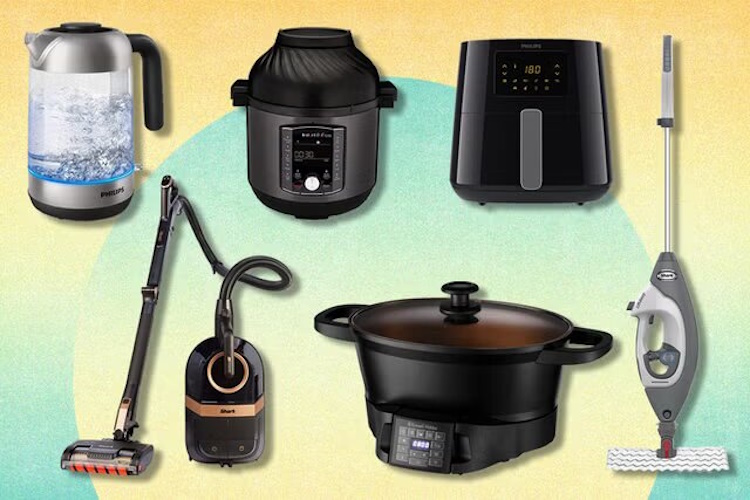
Navigating the Import Process
1. Understanding Import Regulations
Importing goods begins with a solid understanding of the regulations governing international trade. Regulations vary by country and product type, making it essential to research and comply with the specific requirements of your destination market. This includes understanding product classifications, import restrictions, and safety standards.
- Import Tariffs and Duties: Import tariffs and duties can significantly impact your costs and profit margins. Careful consideration of these fees is crucial when pricing your products and assessing the feasibility of your import venture. Familiarize yourself with the tariff schedule of your target country and explore any applicable trade agreements or exemptions.
- Compliance with Safety Standards: Safety standards and product certifications are paramount when importing goods. Ensure that your products meet all relevant safety and quality standards to avoid costly delays, recalls, or legal issues. Stay up-to-date with evolving safety regulations in your industry to maintain compliance.
2. Documentation and Paperwork
The import process involves a multitude of documentation and paperwork. Accurate record-keeping is essential to prevent customs clearance delays and ensure compliance. Key documents include the commercial invoice, packing list, certificate of origin, and any required permits or licenses.
- Import Licenses and Permits: Some products require specific import licenses or permits. Research and obtain the necessary documentation well in advance of your import shipment to prevent regulatory hurdles and potential penalties. Consulting with customs authorities or trade associations can provide clarity on licensing requirements.
- Bill of Lading and Invoice Requirements: The Bill of Lading and commercial invoice are core documents for your import shipment. These documents detail the goods being transported, their value, and shipping information. Accuracy and consistency in these documents are vital to ensure a smooth customs clearance process.
3. Shipping and Logistics
Selecting the right shipping method and logistics partner can significantly impact the efficiency and cost-effectiveness of your import venture.
- Choosing the Right Shipping Method: Consider factors such as shipping time, cost, and the nature of your products when choosing a shipping method. Options range from air freight for rapid delivery to sea freight for cost savings on bulk shipments.
- Handling Customs Clearance: Navigating customs clearance is a critical step in the import process. Work closely with customs brokers or agents to ensure compliance with import regulations and timely clearance of your goods.
- Quality Control and Assurance: Quality control is paramount to protect your brand reputation and meet customer expectations when importing goods.
1. Inspecting Products Before Shipping
Prior to shipment, conduct thorough product inspections to identify and rectify quality issues. This proactive approach can prevent costly quality problems after goods arrive.
- On-Site Factory Inspections: For high-value or complex products, consider on-site factory inspections to assess production processes and quality standards. This hands-on approach provides valuable insights into your supplier's capabilities.
- Third-Party Inspection Services: Third-party inspection services offer independent assessments of product quality. These professionals can conduct inspections at various stages of production and provide unbiased feedback.
2. Handling Quality Issues
Despite precautions, quality issues may arise. Establish clear communication channels with your suppliers to address and resolve quality concerns promptly.
- Return Policies and Warranty: Define clear return policies and warranties with your suppliers to protect your interests and reassure customers. Transparent policies contribute to customer trust and loyalty.
- Resolving Disputes with Suppliers: In the event of disputes with suppliers, strive for amicable resolutions through negotiation or mediation. Escalate matters to legal action only as a last resort to protect your business interests.
In conclusion, successfully importing goods requires a combination of regulatory knowledge, meticulous documentation, and rigorous quality control. By understanding import regulations, ensuring compliance, and implementing robust quality control measures, businesses can thrive in the dynamic world of international trade while safeguarding their reputation and profitability.
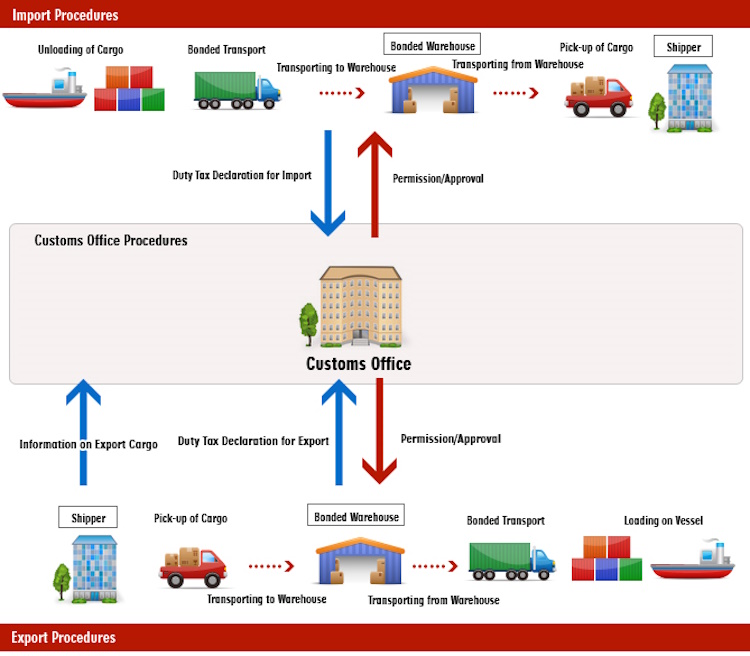
Managing Inventory and Stock
1. Determining Optimal Inventory Levels
To maintain profitability, it's vital to strike the right balance between surplus and scarcity. Employ inventory forecasting techniques, such as ABC analysis and JIT (Just-In-Time) inventory, to determine optimal stock levels. This ensures you have enough inventory to meet demand without overstocking, which can lead to storage costs and obsolescence.
2. Efficient Warehouse Management
Efficiency in warehouse management is a cornerstone of successful inventory control. Implement inventory software systems, utilize bin systems, and employ effective storage strategies like FIFO (First-In, First-Out) to streamline operations. Efficient warehouse management minimizes errors and reduces operational costs.
3. Tracking Sales and Demand Trends
Stay ahead of the curve by tracking sales and demand trends. Utilize analytics tools to monitor which products are performing well and which require adjustments. This data-driven approach allows you to make informed decisions about inventory replenishment and product discontinuation.

Marketing and Selling Home Appliances
1. Building a Brand Presence
In a crowded marketplace, building a strong brand presence is essential. Craft a compelling brand story and mission statement that resonates with your target audience. Consistent branding across all touchpoints, from your website to product packaging, fosters brand recognition and trust.
Product Branding and Packaging
Invest in product branding and packaging that reflects the quality and uniqueness of your home appliances. Creative and informative packaging not only protects your products but also enhances their perceived value. Consider eco-friendly packaging options to appeal to environmentally conscious consumers.
Online and Offline Marketing Strategies
Today, effective marketing extends beyond traditional advertising. Leverage the power of online channels, including social media, email marketing, and search engine optimization (SEO). Explore offline strategies like attending industry trade shows and partnering with local retailers to reach a wider audience.
2. Pricing Strategies for Profitability
Pricing is a delicate art that impacts your bottom line. Consider dynamic pricing models that adapt to market fluctuations and competitor pricing. Bundle complementary appliances for a competitive edge, and offer tiered pricing options to cater to diverse customer segments.
3. Distribution Channels and Partnerships
Strategically select distribution channels and partnerships to expand your reach. Collaborate with reputable retailers, both online and brick-and-mortar, to access broader markets. Explore exclusive partnerships with complementary businesses, such as kitchenware stores or interior designers, to create synergistic marketing opportunities.
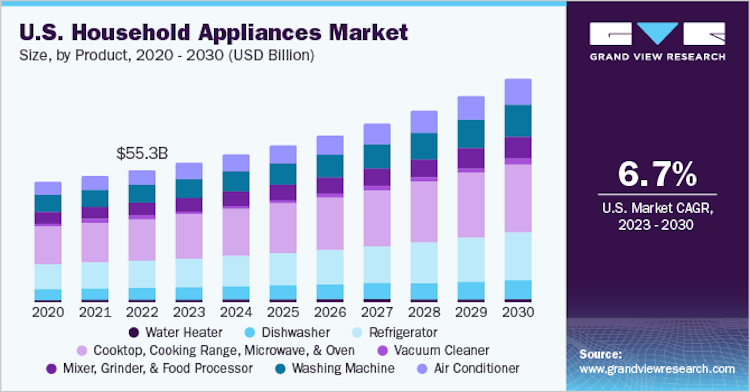
Dealing with Challenges and Risks
1. Supply Chain Disruptions
In the ever-evolving global landscape, supply chain disruptions are a significant concern. Factors like natural disasters, political instability, and global pandemics can disrupt the flow of goods from China. Mitigate these risks by diversifying your supply sources, maintaining safety stock, and staying informed about geopolitical developments.
2. Intellectual Property Rights
Protecting intellectual property is paramount when dealing with Chinese suppliers. Ensure that you have clear agreements in place, including non-disclosure agreements (NDAs) and intellectual property clauses. Conduct due diligence on your suppliers to minimize the risk of counterfeit products or unauthorized reproductions.
3. Currency Exchange and Financial Risks
Fluctuations in currency exchange rates can impact your profitability. Implement hedging strategies to mitigate financial risks and protect your profit margins. Establish strong relationships with financial institutions that can provide guidance and tools for managing currency exchange risks.
Customer Service and After-Sales Support
1. Offering Exceptional Customer Service
In the home appliance wholesale business, exceptional customer service sets you apart. Respond promptly to inquiries, provide detailed product information, and offer personalized assistance. Building strong customer relationships fosters trust and loyalty.
2. Warranty and Repair Services
Home appliances may occasionally require warranty and repair services. Collaborate with reliable service providers to ensure timely and effective repairs. Communicate warranty terms to customers to manage expectations and maintain transparency.
3. Handling Returns and Refunds
Efficiently managing returns and refunds is a vital aspect of customer satisfaction. Develop clear return policies that balance customer needs with the protection of your business interests. Streamline the returns process to minimize disruptions to your operations.

Conclusion
Successfully navigating the challenges and risks associated with home appliance wholesale from China requires a multifaceted approach. Diversify your supply sources, safeguard intellectual property rights, and manage financial risks. Prioritize exceptional customer service, offer reliable warranty and repair services, and handle returns and refunds with efficiency and transparency.
Despite the challenges, the home appliance wholesale business from China offers immense potential for success. With diligent planning, risk management, and a commitment to customer satisfaction, businesses can thrive in this dynamic industry. By continuously adapting to changing market conditions and maintaining a customer-centric approach, you can build a profitable and sustainable home appliance wholesale business in China.

